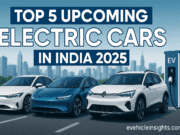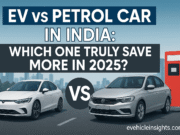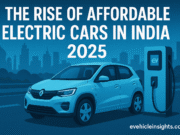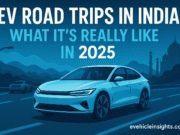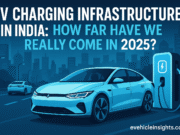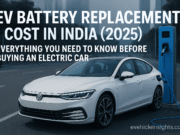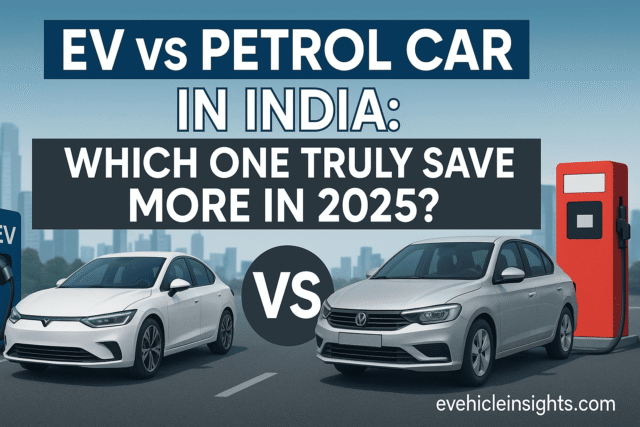Electric cars might feel expensive upfront, but if you’re thinking long-term — from fuel to maintenance to running costs — the numbers in 2025 tell a different story. Spoiler alert: EVs are no longer just for the tech-savvy crowd. They’re finally making real financial sense for regular Indian buyers. We ran the numbers, lived the experience, and here’s the full breakdown.
I remember this one late-night drive last winter, sitting behind the wheel of a friend’s brand-new Hyundai Ioniq 5, quietly gliding through Pune’s empty streets. Not a sound. No engine growl, no gear shifts — just that eerie, almost magical EV hum. We passed a petrol station with prices pushing ₹115/litre, and I laughed to myself, “Bro, this car’s charging for like ₹2/km.” That stuck with me.
Fast forward to now — I’ve test-driven over a dozen EVs and talked to real-world owners across Delhi, Mumbai, and Bengaluru. One thing’s clear: in 2025, this EV vs petrol debate isn’t about if EVs are cheaper. It’s about how much cheaper — and over what kind of ownership timeline.
So let’s break it down. With real-world numbers. Not brochure promises.
Upfront Cost: EVs Still Sting (But Discounts Help)
Let’s get the awkward part out of the way — EVs still cost more initially.
| Car Type | Popular Model | On-Road Price (2025) |
| Petrol Car | Hyundai Venue SX 1.2L | ₹11.2 lakh |
| Electric Car | Tata Nexon EV LR | ₹17.5 lakh |
That’s a solid ₹6+ lakh difference. For many, that’s the dealbreaker — and fair enough. But wait, the story changes quickly when you zoom out to total cost of ownership.
Running Cost: EVs Crush It (Even with Rising Electricity)
This is where EVs win by a mile — pun intended.
| Metric | Petrol Car | EV |
| Fuel/Charging Cost/km | ₹7.5/km (avg) | ₹1.2–₹1.8/km |
| Monthly Driving (1000 km) | ₹7,500 | ₹1,500 |
| Yearly Fuel Spend | ₹90,000+ | ₹18,000–₹21,000 |
So, even a daily office commute can save you nearly ₹6,000/month. Over 5 years? You’re pocketing ₹3–3.5 lakh just on fuel. And this is for moderate usage.
Maintenance: EVs = Fewer Moving Parts, Fewer Headaches
A lot of folks still ask me, “But what if the battery dies?” Or, “What’s the maintenance cost on these fancy cars?”
Here’s the deal: EVs have no oil changes, no clutch repairs, no engine tuning. Batteries are built to last 8–10 years, and major players like Tata and Hyundai now offer 8-year warranties.
Let me put it into perspective:
| Service Cost (Annually) | Petrol Car | EV |
| Oil change, filters, etc. | ₹6,000–₹8,000 | ₹1,500 max |
| Major service (5 yrs) | ₹30,000+ | ₹8,000–₹10,000 |
One Nexon EV owner told me he’s spent ₹1,100 in 2 years on service. And that was mostly tire rotation and cabin filters. That’s it.
Government Incentives & Tax Benefits (Still Alive… Sort Of)
Okay, here’s where it gets tricky. State subsidies in India have become a bit unpredictable in 2025. Delhi, Gujarat, Maharashtra used to be the most EV-friendly, but a few rollback announcements have created some confusion.
That said, the ₹1.5 lakh income tax rebate under Section 80EEB (for EV loans) is still available.
Also, registration & road tax exemptions for EVs in many states shave off a few thousand more.
Real-World Example: Nexon EV vs Venue Petrol (5-Year Cost)
Let’s take a head-to-head case:
| Category | Tata Nexon EV LR | Hyundai Venue Petrol |
| On-Road Price | ₹17.5 lakh | ₹11.2 lakh |
| Fuel/Charging (5 yrs) | ₹90,000 | ₹4.5 lakh |
| Maintenance (5 yrs) | ₹10,000 | ₹35,000+ |
| Road Tax/Regn | ₹0 (in EV states) | ₹75,000 |
| Total 5-Year Cost | ₹18.6 lakh | ₹16.5 lakh |
After 5 years, the gap shrinks dramatically.
Now add in resale value (EVs are expected to retain 50–60% if battery holds) and you’re looking at parity or even better economics for EVs.
But Here’s the Catch…
Not everything’s perfect in EV-land. Here are the watchouts:
- Charging infrastructure: Improving, but still patchy in smaller towns.
- Battery degradation: Minor over 5 years, but a risk after 7–8 years.
- Long-distance travel: Still needs planning. Chargers aren’t always where Google says they are.
- Resale value: Unknowns remain — though early signs are promising.
Still, for most urban Indians with a private parking + charging setup, the pros outweigh the cons.
So… Which One Should You Choose?
Here’s my brutally honest take:
- If you’re buying your first car, go petrol. Lower upfront cost, zero hassle.
- If you’re upgrading from a 5–8-year-old car, strongly consider EV — it’ll save you real money in the long run.
- If you’re leasing or planning short-term ownership, EV savings may not show up soon enough.
- If you do long-distance intercity travel often, hybrid may still make more sense.
But if your life is mostly city-based, with school runs, 15–20 km daily drives, or home-to-office-back routines? Go electric. You’ll feel the savings every single month.
Final Thoughts (And a Small Rant)
At EVehicleInsights, we don’t just crunch numbers. We look at what it means to own an EV in real Indian life. With traffic. With rain. With unreliable electricity. With society uncles peeking under your hood and asking, “Kya yeh full electric hai?”
Owning an EV in 2025 isn’t just about money. It’s about convenience. Silence. Low stress. And yes, doing your bit for the planet — even if you’re just in it for the savings.
So go ahead, run the math. Test drive both. But don’t dismiss EVs just because they cost more upfront. That number isn’t the full story anymore.
Stick around for tomorrow’s post — we’re diving into India’s EV charging scene and whether you should trust public chargers in 2025.
Till then,
— EVehicleInsights

